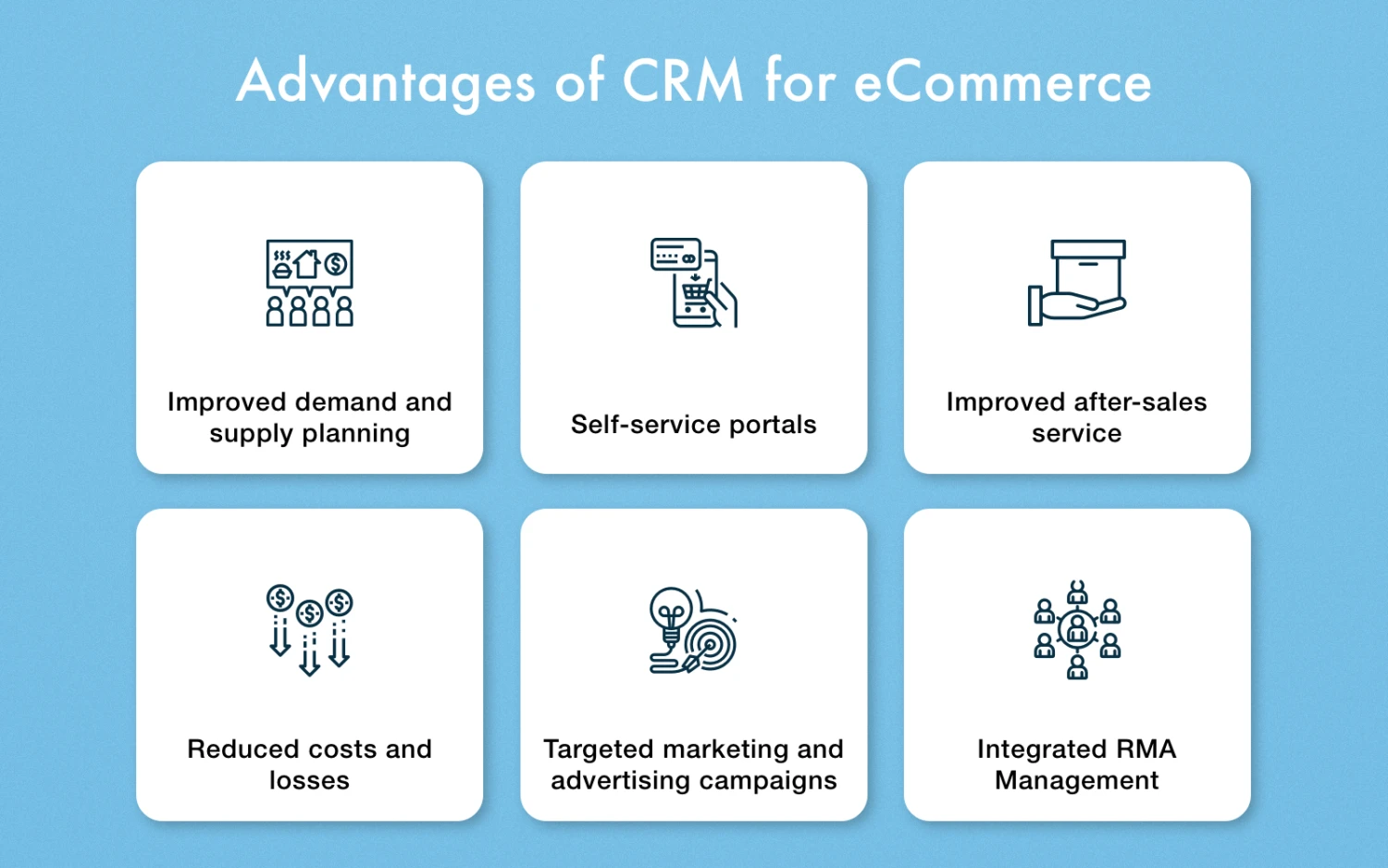
E-commerce CRM Solutions for Customer Management
In the fast-paced realm of e-commerce, customer management plays a pivotal role in ensuring success. This article delves deep into the E-commerce CRM solutions that drive customer engagement and satisfaction while optimizing the business's operations.
The Significance of E-commerce CRM Solutions
In the dynamic world of e-commerce, staying ahead of the curve is no small feat. E-commerce CRM solutions emerge as the guiding stars, illuminating the path to unparalleled customer management. They are not just tools; they are the architects of meaningful customer relationships.
Understanding Customer Relationship Management (CRM)
Customer Relationship Management, or CRM, is the art and science of nurturing and managing relationships with your customers. It encompasses strategies, practices, and technologies that empower businesses to understand, engage, and serve their customers better.
CRM Components
A robust CRM system comprises various components:
-
Data Management: The heart of CRM, it collects and organizes customer data.
-
Sales Automation: Automates sales processes, making them more efficient.
-
Marketing Automation: Helps businesses create and track marketing campaigns.
-
Customer Support: Enhances customer service and support.
-
Analytics: Offers insights into customer behavior and preferences.
-
Integration: Ensures seamless data exchange between systems.
-
Mobile Access: Allows access to CRM on the go.
-
Artificial Intelligence: Enhances decision-making with AI-driven insights.
The Benefits of E-commerce CRM
-
Enhanced Customer Understanding: CRM solutions provide in-depth customer insights, enabling businesses to tailor their offerings.
-
Improved Customer Engagement: Personalized communication fosters stronger customer relationships.
-
Efficient Sales Processes: CRM automates sales tasks, reducing manual effort.
-
Data-Driven Marketing: Businesses can create data-backed marketing strategies.
-
Customer Retention: CRM strategies promote customer loyalty and reduce churn.
Exploring CRM Strategies for E-commerce
E-commerce CRM solutions are a diverse landscape, offering myriad strategies to captivate and retain customers. Here are some innovative approaches:
Personalized Shopping Experiences
Imagine a world where every customer feels like a VIP. E-commerce CRM solutions enable businesses to offer tailored shopping experiences based on a customer's previous behavior and preferences. This not only boosts sales but also fosters brand loyalty.
Multichannel Customer Support
Customer support is no longer limited to telephone hotlines. E-commerce CRM systems incorporate live chat, email support, and social media interactions. This multichannel approach ensures that customers receive assistance through their preferred platform.
AI-Powered Recommendations
Harnessing the power of artificial intelligence, CRM systems can recommend products or services to customers based on their past purchases and browsing history. This level of personalization enhances the chances of upselling and cross-selling.
Data-Backed Marketing Campaigns
E-commerce CRM empowers businesses to create targeted marketing campaigns. By analyzing customer data, businesses can design campaigns that resonate with their audience, leading to higher conversion rates.
Customer Feedback Loops
Continuous improvement is the key to success. E-commerce CRM solutions offer tools for collecting and analyzing customer feedback. This invaluable information enables businesses to refine their offerings and services.
Seamless Integration
CRM systems often integrate seamlessly with other e-commerce tools, streamlining operations. This integration ensures that data flows seamlessly across the organization, from marketing to sales to customer support.
Frequently Asked Questions
-
What is the primary goal of E-commerce CRM?
- E-commerce CRM primarily aims to enhance customer satisfaction, boost sales, and improve overall customer management.
-
How can businesses benefit from AI in CRM?
- Artificial Intelligence in CRM can provide valuable insights, automate tasks, and enhance personalization, leading to improved customer experiences.
-
What are the key features to look for in an E-commerce CRM solution?
- Businesses should consider data management capabilities, integration options, and support for multichannel customer interactions.
-
Is E-commerce CRM suitable for small businesses?
- Yes, E-commerce CRM solutions are scalable and can cater to the needs of small businesses, helping them grow.
-
How can businesses measure the success of their CRM strategies?
- Success can be measured through metrics like customer satisfaction, increased sales, and improved customer retention rates.
-
Are there open-source E-commerce CRM solutions available?
- Yes, several open-source E-commerce CRM solutions offer cost-effective options for businesses.
Summary
E-commerce CRM solutions are the lifeblood of successful e-commerce ventures. With personalized shopping experiences, AI-powered recommendations, and data-driven marketing, businesses can excel in customer management. Integration, feedback loops, and multichannel support further enhance the customer journey.
